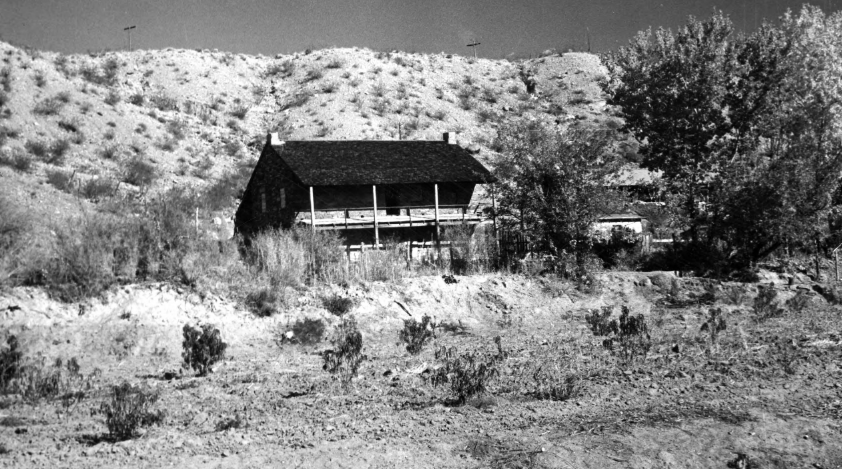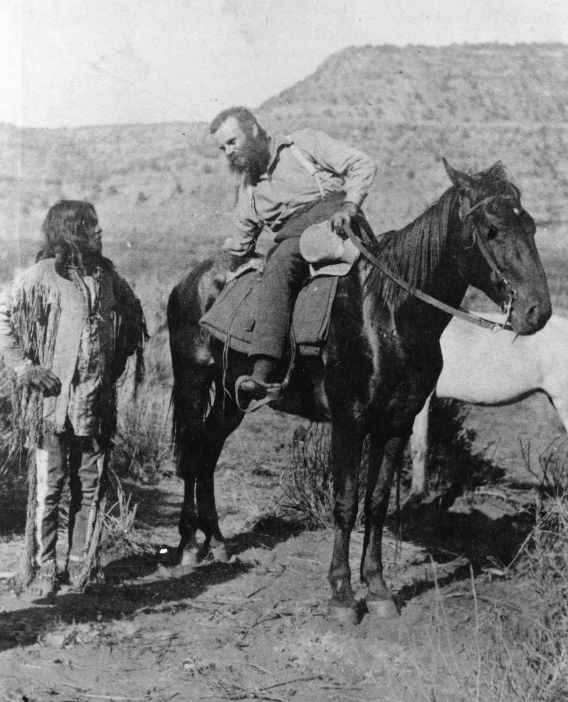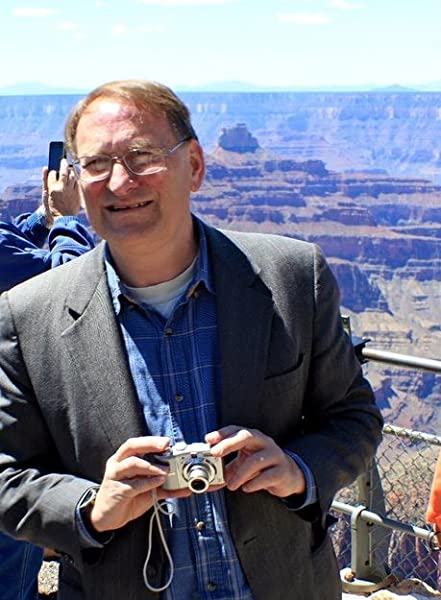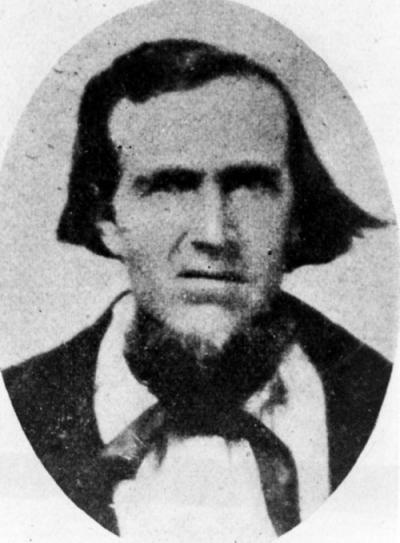Date: February 3, 2023 (Season 5, Episode 8: 62 minutes long). Click here for the BuzzSprout version of this Speak Your Piece episode. Are you interested in other episodes of Speak Your Piece? Click here. The episode was co-produced by Brad Westwood and Chelsey Zamir, with sound engineering and post-production editing by Jason T. Powers, from the Utah State Library Recording Studio. Above photo caption: Jacob Hamblin (1819–1886), colonizer, frontiersman, Mormon pioneer, Indian missionary, and subject of Todd Compton’s book. Photo courtesy of Utah State Historical Society.
Host Brad Westwood interviews Dr. Todd M. Compton regarding his award-winning book: A Frontier Life: Jacob Hamblin, Explorer and Indian Missionary (University of Utah Press, 2013). In this episode, Compton offers a more fully rendered story of Jacob Hamblin, beyond the long-held popular stories. Hamblin’s life was filled with constant exploration and resettling, while he survived many harrowing events; however, he was also a religious seeker, something of a mystic, combining his faith with that of the spiritual life he encountered among Native Americans. Hamblin worked and hunted, rested, recreated, and sought to speak fluently among them, developing a mutual respect and trust. Hamblin’s story starts in Tooele, then he lived for many years in Southern Utah where he aided in the settlement of Santa Clara (Washington County), then Kanab (Kane County), before he moved on to Arizona and New Mexico.
Hamblin worked among the Gosuite, Paiute, Hopi and Navajo, and hoped to convert them despite the cultural chasm between them; but equally so – and in conflict with his missionary work – Hamblin was an ardent colonizer, accepting multiple missions from Salt Lake City to identify viable lands for settlement. Compton wrestles with, then helps us understand, the many paradoxes in Hamblin’s life. Hamblin’s dogged work as an explorer and early settler would inescapably lead to the loss of traditional lifeways, and eventually to the dispossession of Native American homelands.

Caption: Cover of Compton’s 2013 book, A Frontier Life: Jacob Hamblin, Explorer and Indian Missionary (University of Utah Press).
Caption: After devastating floods washed away Santa Clara’s first settlement in 1862, Hamblin built this large two-story home on higher ground a year later above the Santa Clara River floodplain. Courtesy of the Utah State Historical Society.


Caption: The photo is of a member of the Paiute tribe (left) with scientist and explorer John Wesley Powell. As described in Compton’s book, Jacob Hamblin was an integral guide, negotiator and translator for Powell’s Colorado River (1869 and 1871-1872) expeditions. Photo circa 1872. Photo courtesy of Utah State Historical Society.
Bio: Todd M. Compton earned his doctoral degree from University of California, Los Angeles, in Classics, with a concentration in Greek and Indo-European mythology. Beyond his interest in the classics, Compton is a historian of Mormon history, Western U.S. history, and Native American history; he also loves music, publishing in 2017 the book Who Wrote the Beatle Songs?: A History of Lennon-McCartney. Photo courtesy of Amazon.com.

Additional Resources, plus Dr. Compton’s Recommended Readings in Utah History:
- Compton, Todd M. A Frontier Life: Jacob Hamblin, Explorer and Indian Missionary. University of Utah Press, 2013.
- Compton, Todd M. Slickrock Missions: Jacob Hamblin’s Communitarian Expeditions Across the Colorado (Utah Tech University: St. George, Utah), 2015.
- Hardy, B. Carmon. Doing the Works of Abraham: Mormon Polygamy―Its Origin, Practice, and Demise. The Arthur H. Clark Company, 2007.
- Peterson, John Alton. Utah’s Black Hawk War. University of Utah Press, 1998.
- Bagley, Will. The Whites Want Everything: Indian-Mormon Relations, 1847–1877, 2019.
- W. Paul Reeve, Making Space on the Western Frontier: Mormons, Miners, and Southern Paiutes. The Arthur H. Clark Company, 2007.
- Canyon, Cory Small. Contested Space: Mormons, Navajos, and Hopis in the Colonization of Tuba City BYU Thesis, 2010.
Do you have a question or comment, or a proposed guest for “Speak Your Piece?” Write us at “ask a historian” – askahistorian@utah.gov

